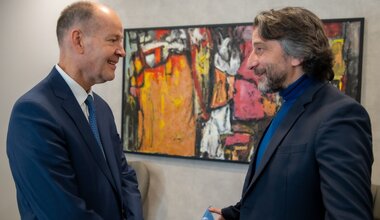UNMIK helps protect the right to life in Kosovo
“For a piece of paper, my mum is no longer here today.”
These chilling words come from Velerda Sopi, daughter of Sebahate Morina who was brutally murdered by her ex-husband in March 2021 in a domestic violence case that has come to characterise a failure of Kosovo institutions – but a success of the Kosovo judiciary.
After a two-year court process, Velerda and her siblings have official recognition of the failure of police to take existing complaints about domestic violence seriously. In March this year, the Constitutional Court of Kosovo found that institutions had failed to fulfil their obligations to protect the life of their mother.
“I beg the institutions, on my behalf, to take women’s complaints seriously. I would ask the police to handle these cases more seriously. If women complain, take it into consideration, don’t leave them like my mother’s case, which has been left aside,” Velerda said in a recent interview with the Kosovo Law Institute (KLI).
The court found that the Kosovo Police and the Prosecutor’s Office failed to protect Sebahate by not extending protection measures following repeated reports of physical abuse, thus violating the Kosovo Constitution, and the principles of the European Convention on Human Rights and of the Istanbul Convention. For Velerda, who described the outcome in her family’s case as a “relief”, her concern is that no other young people find themselves in similar situations where alarm bells have been raised, but no support provided.
“There was maybe a lot of conflict between our parents, but the state is responsible on one side, that it did not take [appropriate] measures and continues to not take measures for other cases that are happening each day more.”
Sebahate’s case was taken on behalf of her children by KLI’s free Legal Aid Centre, which has been supported by UNMIK over the past three years, took the case on behalf of the Sopi children after the traumatic murder-suicide. The centre has provided free legal aid and representation to 2,000 people from all communities, and all parts of Kosovo, south and north alike.
Speaking on behalf of her siblings, Velerda said she and her siblings had received “outstanding support” around the clock from the KLI team.
“The centre has helped us immensely and we had it like a shoulder of support for any kind of complaint or request that we might have had as children of those involved in the case.”
Velerda’s heartfelt testimony was heard through a video interview screened during an event marking the completion of an UNMIK-supported project with KLI.
Building partnerships and accountability in the judiciary
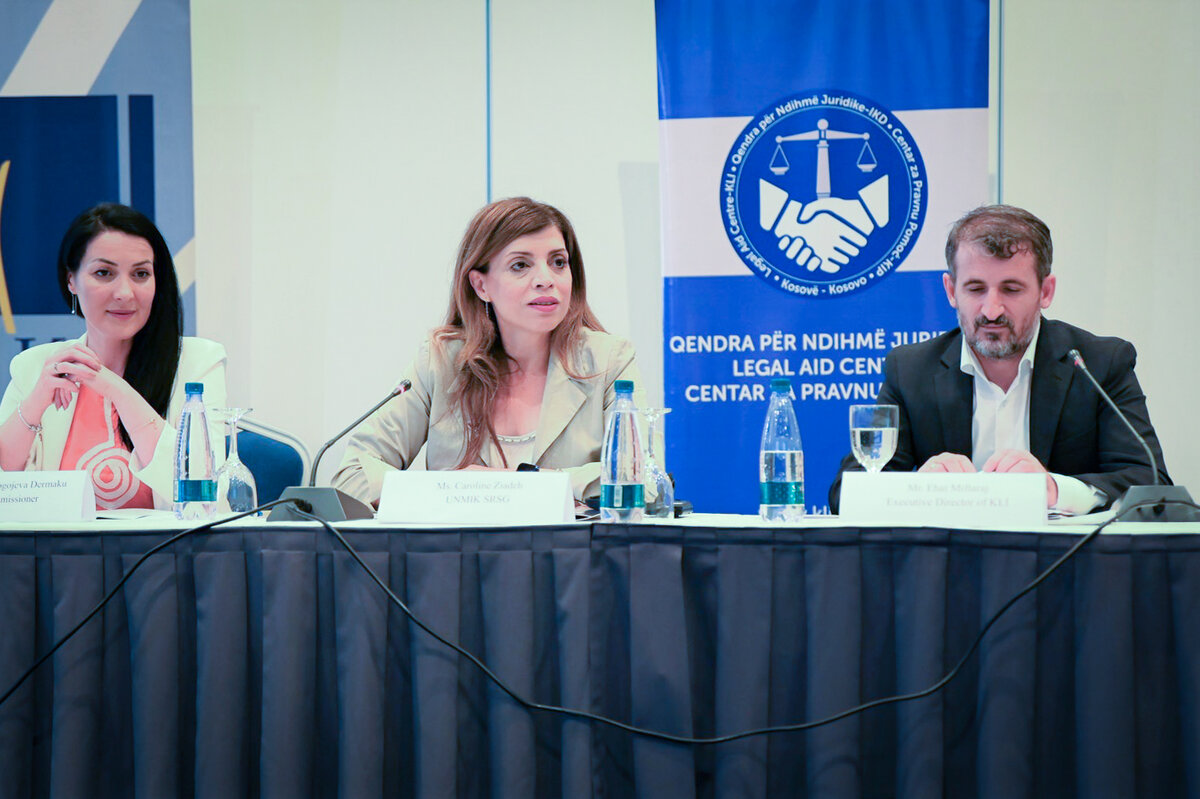
Head of UNMIK Special Representative of the UN Secretary-General Caroline Ziadeh said despite tragic circumstances it was a win that the fundamental right to life was recognised by the Kosovo Constitutional Court. “Let’s hope this is a precedent and a wake-up call in the fight against domestic violence,” she said.
Working to promote accountability, integrity, and transparency within the judicial and prosecutorial systems in Kosovo, UNMIK also supports the KLI in running two Legal Clinics for a total of 40 law graduates from universities in Prishtinë/Priština and Mitrovica/Mitrovicë North.
“I heard about the Legal Clinic from previous participants, and the moment I joined it, I understood its importance. We only learn theory at the University, but through the Legal Clinic we saw the practice and understood our future roles as lawyers and judges,” said Mirlinda Çunaku, one of the second-generation Clinic participants who received their completion certificate at the event.
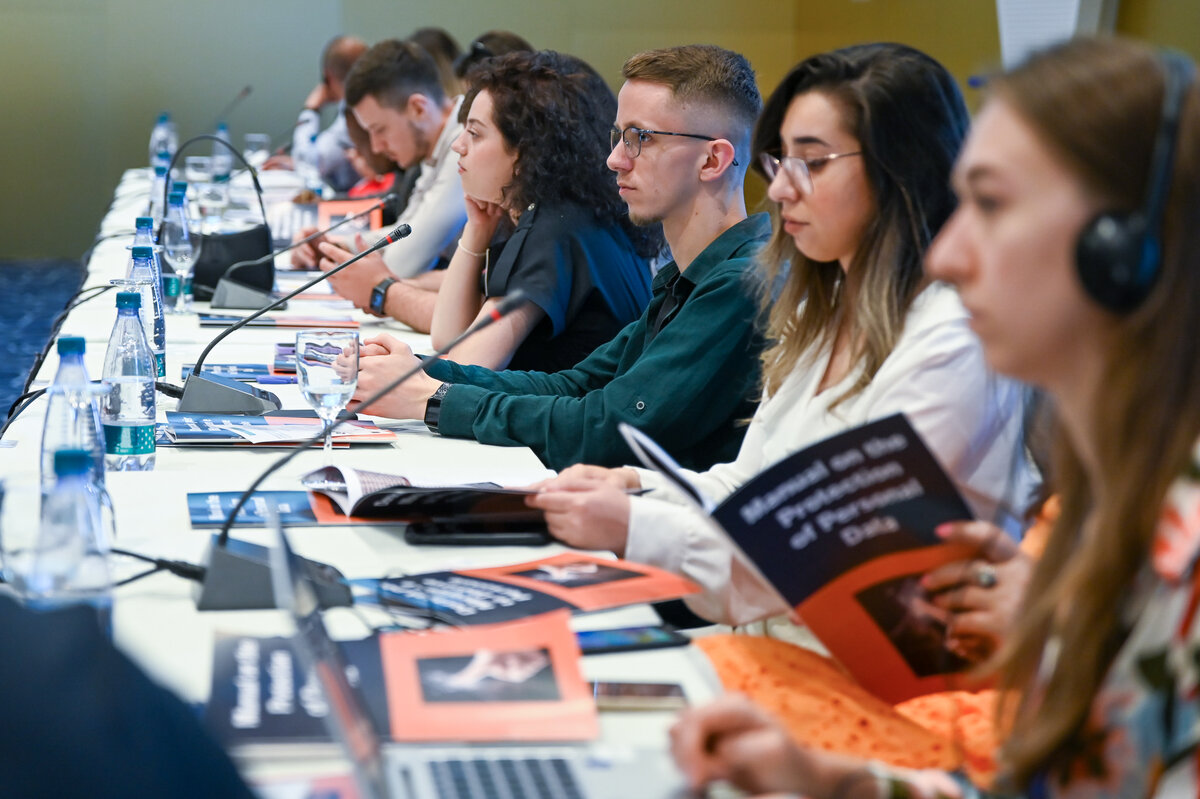
Her colleague Magdalena Račićević said the clinics provided an unparalleled opportunity to put theory into practice: “It was important for us to learn how to practically apply want we have learned at the University.”
With KLI's Legal Clinics, law graduates also had a chance to take up legal internships in different institutions and NGOs, including the Kosovo Agency for Information and Privacy (AIP).
“Cooperation with the KLI and UNMIK left a mark in my career. Interns engaged through the KLI helped us perform our duties, and they learned how to inspect potential breaches of privacy,” said Kosovo’s Commissioner for Information and Privacy said Krenare Sogojeva-Dërmaku.
Protecting personal information
Supported by UNMIK, KLI has also developed and published the Manual on the Protection of Personal Data that will be used by the Agency in its public outreach efforts and help the public make better use of the Law.
The manual contains forms and templates that will make it easier for all to file cases with the Agency when they feel that their data privacy rights were violated, and those are now also available online.
Closing the event, Ehat Miftari, the KLI’s Executive Director, looked back on the legacy that stays behind the cooperation between UNMIK, KLI, and AIP.
“We brought students from all communities into the process despite divisions caused by politics. We served more than 2,000 people, also with our mobile free legal aid clinics, in both north and south of Kosovo, also during the pandemic, and we now have a manual on data protection. These are all important achievements, and I thank UNMIK and our staff for all their support."
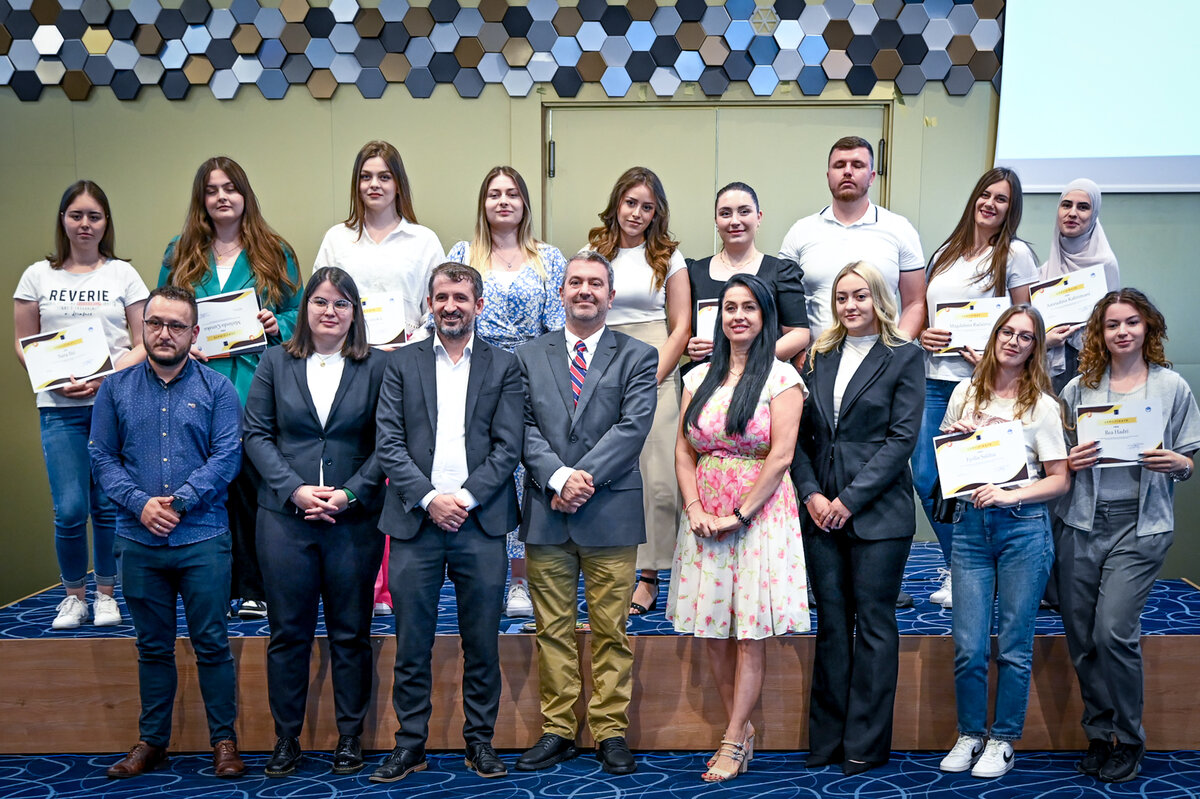
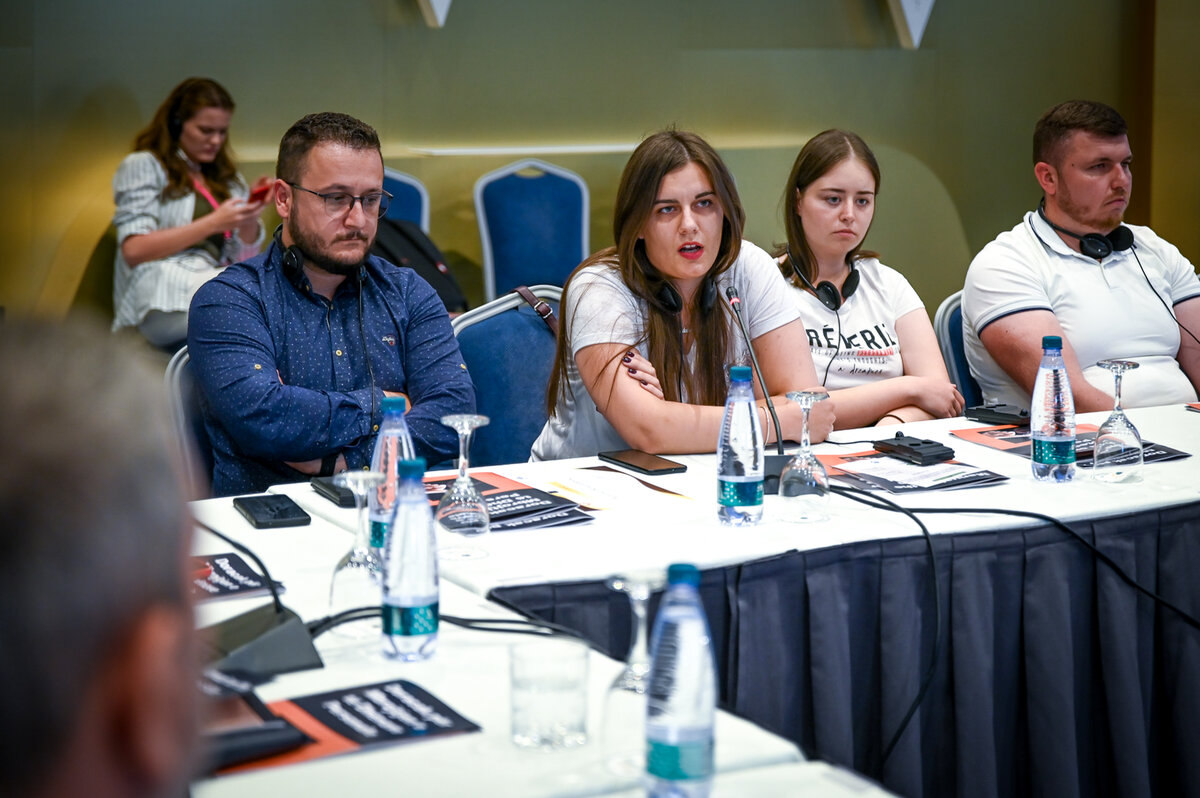
 UN
UN United Nations Peacekeeping
United Nations Peacekeeping



